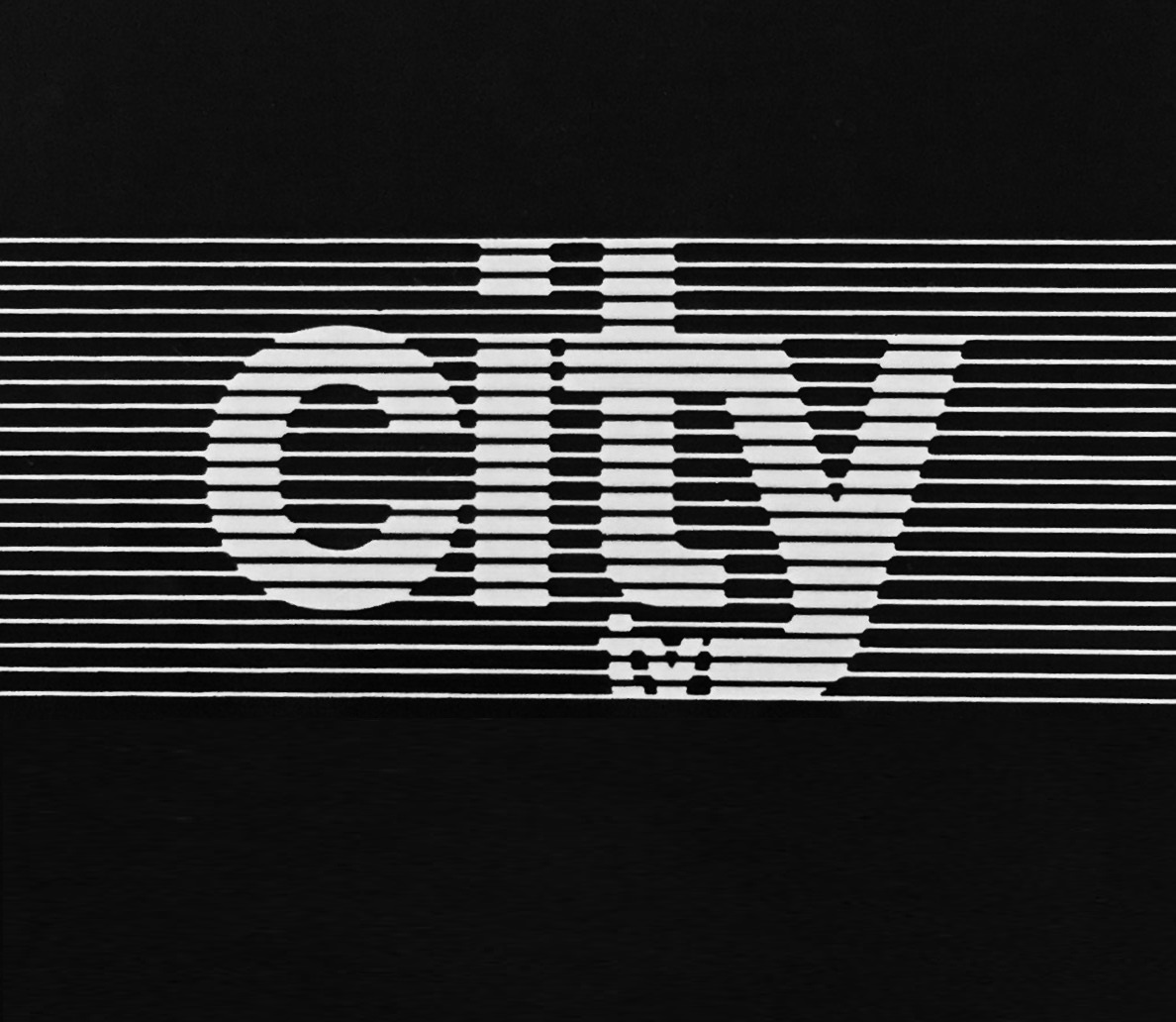The trajectory of television was altered forever on Sept. 28, 1972, when Citytv signed on in Toronto on the UHF dial—against some rather stiff competition. But the scrappy approach to programming will be forever remembered, thanks to many names the management didn’t want changed. For this occasion, we got in touch with a few.

(This piece was originally published in the Summer 2022 magazine published by The Canadian Jewish News. Interviews conducted by Ed Conroy of Retrontario have been edited and condensed. Viewer discretion advised.)
MOSES ZNAIMER
Born in Tajikistan and raised in Montreal, the co-founder and former head of Citytv started in broadcasting at the CBC, before he started his private broadcasting journey. Later, he founded ZoomerMedia, and now oversees its TV, radio and magazine, along with the MZTV Museum at the ZoomerPlex.
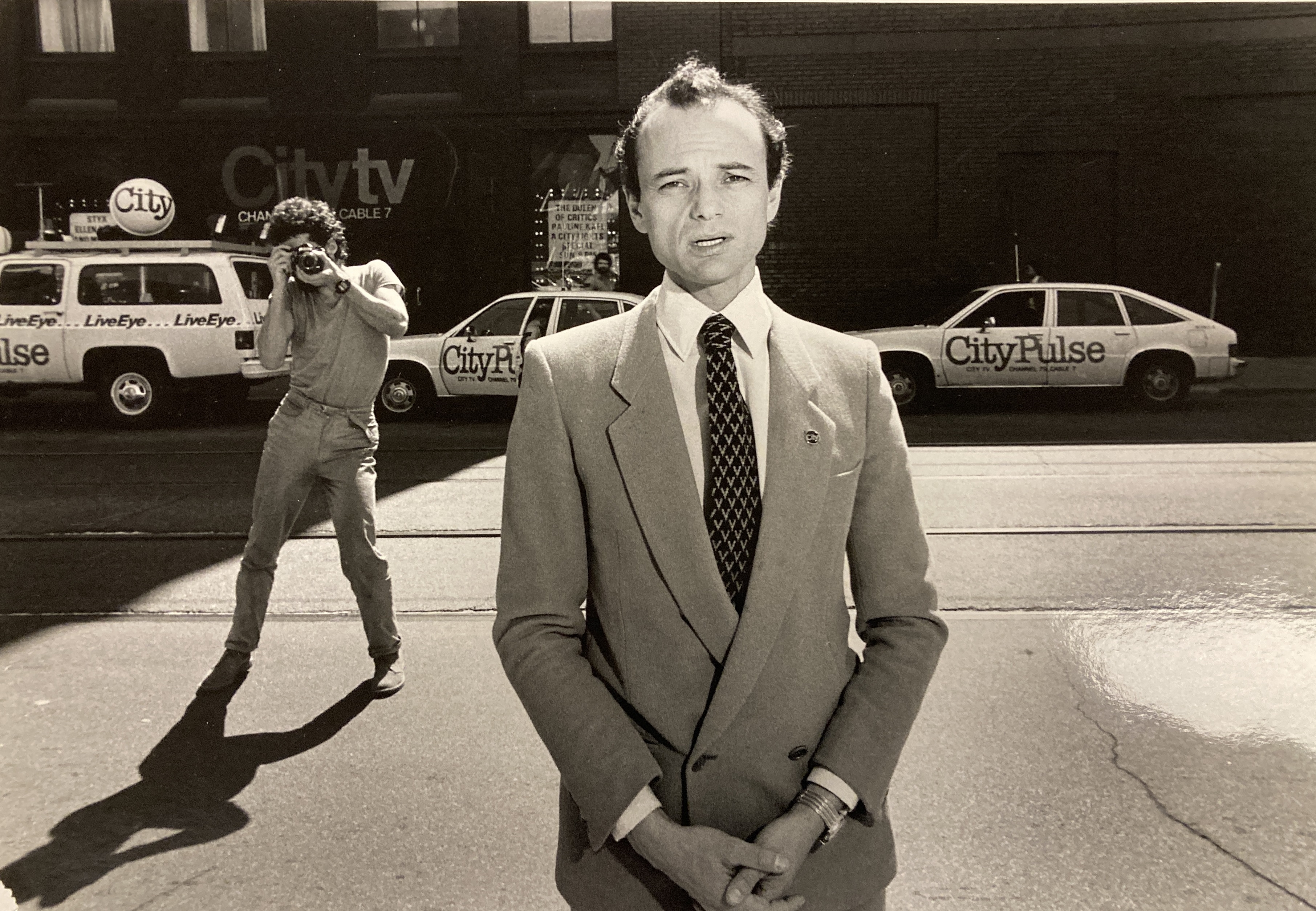
I flipped the “on” switch for Citytv on Sept. 28, 1972, a day that marked the largest television audience recorded in Canadian history up to that time. Alas, the viewership wasn’t tuned into the upstart I co-founded at Channel 79. Most viewers were watching Team Canada’s decisive seventh game victory over the Soviets, topped by Paul Henderson’s epic goal.
We premiered at 7:30 p.m. with an unprecedented two-and-a-half-hour news and current affairs broadcast called The City Show and that segued into a fabulous BBC-produced costume drama called Casanova—which I managed to snag from the CBC because they were afraid of the bare breasts that occasionally flashed into view.
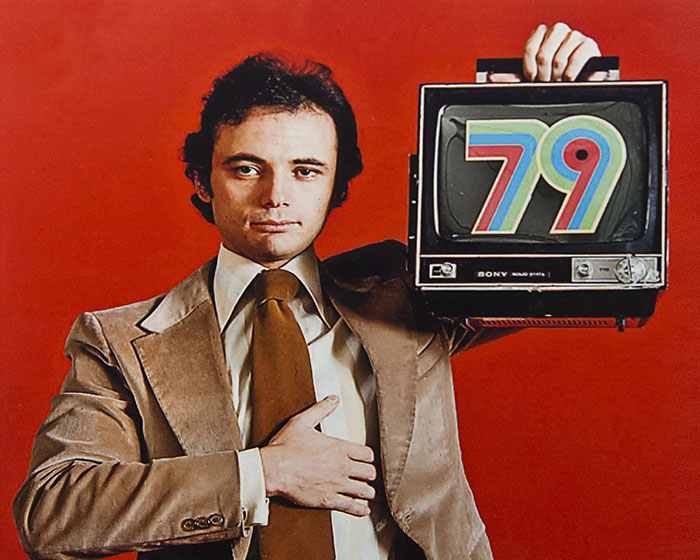
JERRY GRAFSTEIN
Well-known as a Toronto lawyer and political campaigner, he was appointed to the Senate of Canada in 1984, and stayed there until retirement in 2010. But his business career also found him involved in a wide range of media companies, one of which was like no other.
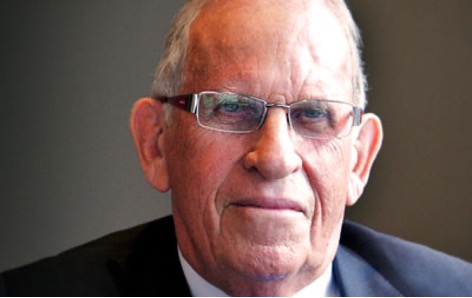
Back in 1971, as I began to specialize in communications law, I became a hot shot at the Canadian Radio-television and Telecommunications Commission (CRTC). And that’s where I met a woman named Phyllis Switzer.
I already knew about her husband, Sruki Switzer, who was one of the most innovative communications engineers in the country. Phyllis told me about his scheme to take a small UHF tower at the corner of Yonge and Eglinton streets in Toronto to start a small independent television station and how she’s got Ray Wolfe, a terrific guy, financing the project with $800,000.
A brilliant idea, I told her. But it ain’t gonna work. Ray Wolfe is a grocer. And do you think the CRTC is going to allow it after the CBC and all the rest complain? No way. But if the money falls away, and you need my help… you call me.
Nine months later, she’s at my law office to tell me I was right: Ray dropped out because he doesn’t think it’ll be approved. I was honoured that she wanted me to be a partner. A TV station also needed someone in public relations and advertising. Ed Cowan, who worked in my building at 111 Richmond St., was one of the hottest and brightest guys in the country.
And then we needed a programmer. I thought of an interesting guy I met in Ottawa named Moses Znaimer. I called him up and told him what we were doing, and he came right over. We were the four original partners of Citytv—and it all came together within one hour.
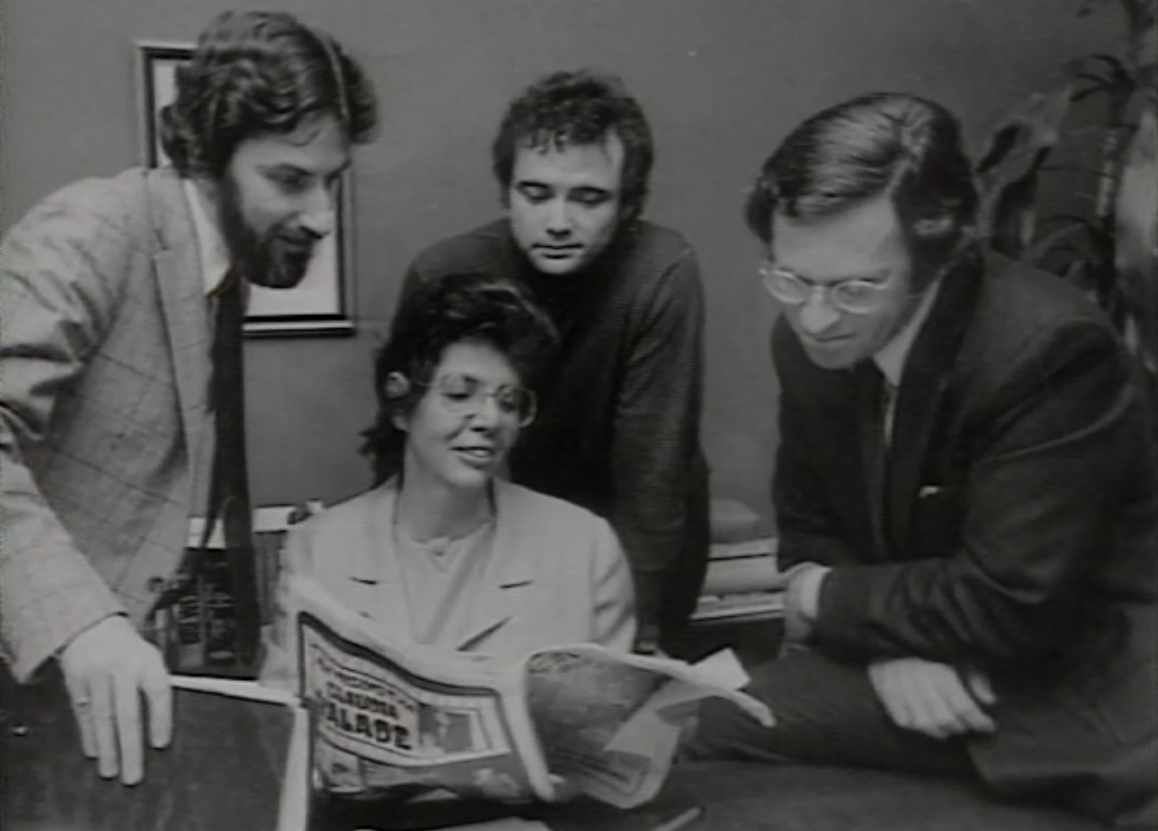
MICKI MOORE
The most famous Jewish person from Shreveport, Louisana, ended up a celebrity in Toronto thanks to her uninhibited conversations on daytime television on a show called You’re Beautiful. Married since 1990 to Town Shoes founder Leonard Simpson, the couple remain active philanthropists.
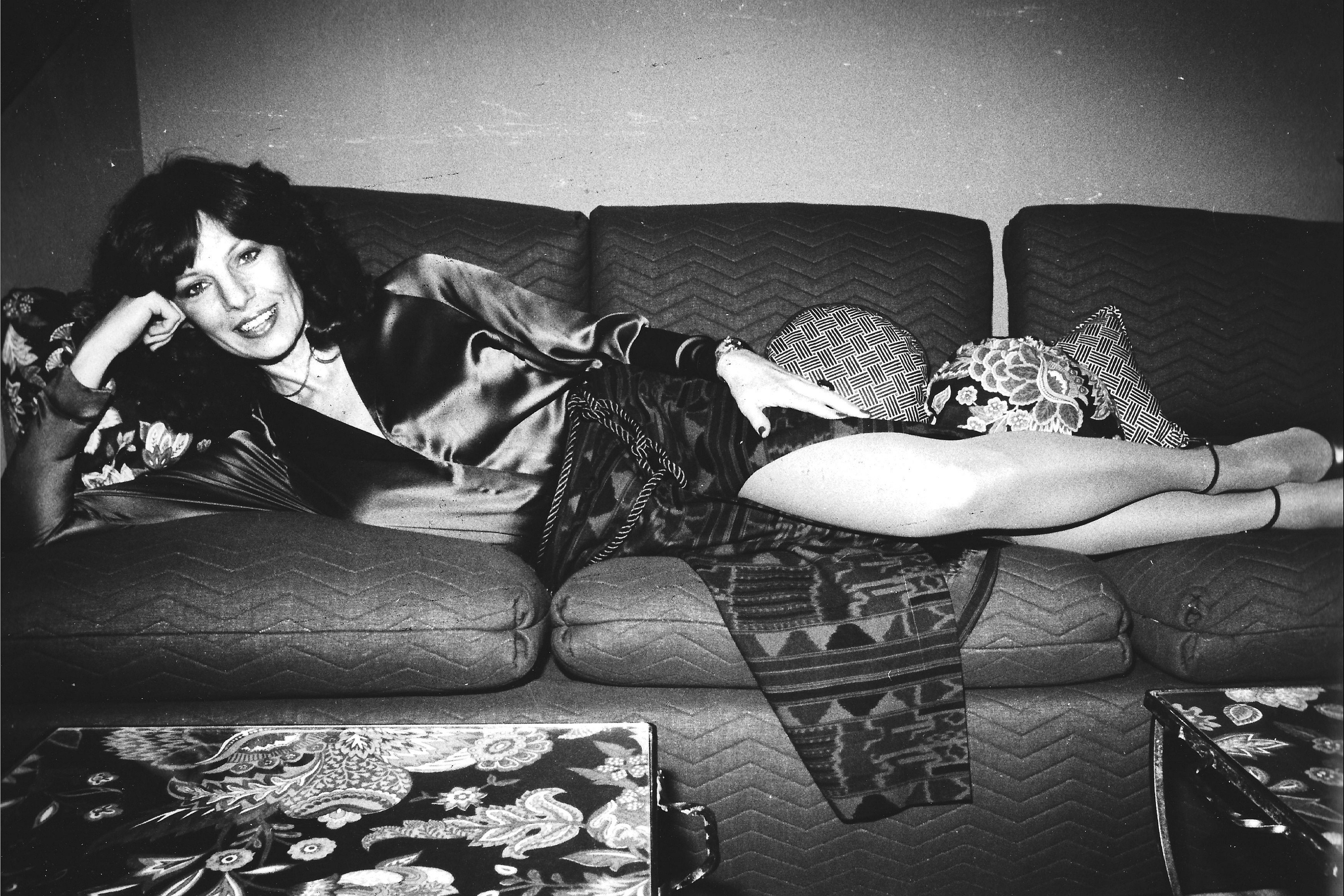
It was like a whirlpool of creativity there. We were all flying by the seat of our pants, but you could go to bed thinking of some crazy idea and by the morning it would be all fleshed out and on the air.
The viewers must have liked it because they kept tuning in—and phoned whenever they had an opinion. If my hair was straight one day and curly the next, we’d get 50 calls demanding that I bring back the old hairdo.
I was a mother with two children back when everyone else in the original Citytv building at 99 Queen St. E. was single. It put me in a different league from them, but it all worked out, because the youthful energy paid off everywhere.
We did a daily show that taped enough new episodes to fill 52 weeks of the year. And that was with a staff of three! Somehow we managed with just a few people. And something great always happened.
To this day, I get these guys who are now in their 60s—maybe even older— telling me they rushed home from high school to watch. They tell me, “Everything I learned about sex, I learned it from you!”
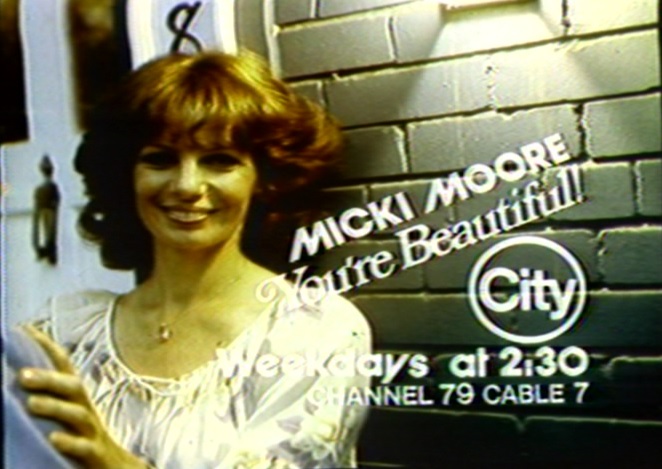
LIBBY ZNAIMER
After breaking into journalism with the Associated Press in Tel Aviv, she went from Minneapolis to New York to Ottawa before settling in Toronto. These days, her role as vice-president of information at ZoomerMedia includes hosting a daily open-line radio talk show, Fight Back.
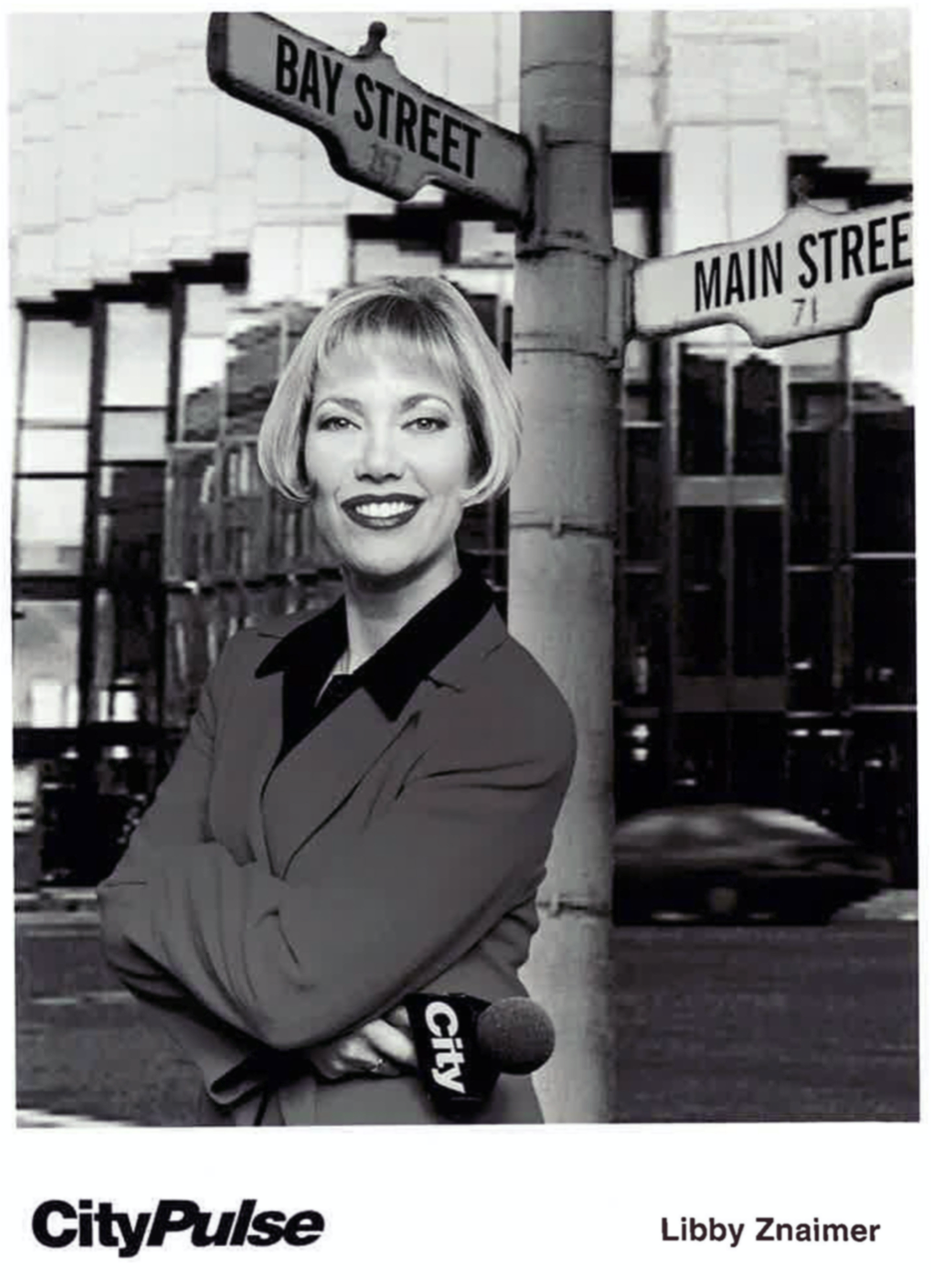
When I was the money specialist at CityPulse in the 1990s, I did a lot of explainer pieces aimed at regular consumers.
So one day I was at Queen’s Park covering a demonstration of public servants—I think they were mostly prison guards—and I was shocked because it was starting to turn violent. I saw them spit on a cabinet minister; it was something else.
And then in the middle of this melee I see a cop coming straight towards me. I’m sure he’s going to tell me to move or get out of the way, like they usually do. But instead he asks me, “What should I do with my mortgage?”
For a while, CityPulse was promoted as being about what happened to you today: your city, your street, your house, your job, your kids. “Everywhere” was the slogan we had to live up to. It also meant letting reporters use their real last names in the days when Italians, Greeks and Jews were instructed to change theirs.
News used to be wallpaper, with everything presented at a distance. What we pioneered in Toronto was all about getting in the middle. And sometimes it meant the reporter was the one caught off-guard by a question.
LORNE HONICKMAN
A comedian turned news reporter whose on-air work as a legal specialist motivated him to enroll in Osgoode Hall Law School—while continuing to do newscasts on the weekend. Today, he’s a defamation law specialist at Brauti Thorning LLP, while continuing to make media appearances in Toronto and beyond.
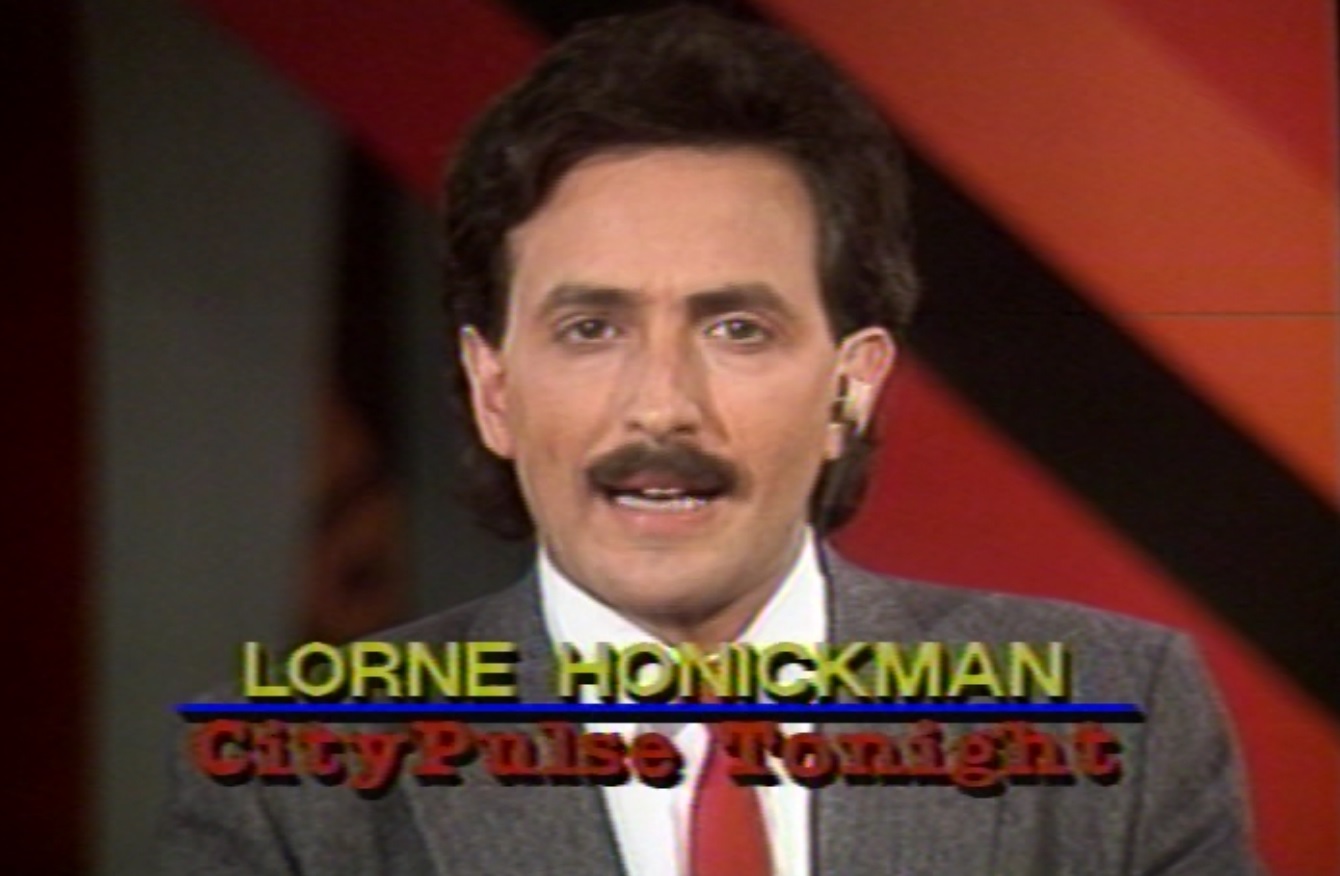
After my failed attempt at stand-up comedy, I was fortunate to get a job at CityPulse in 1981. I remember when Hanukkah was coming up in that first year.
They wanted to do some kind of story—why not send out this young reporter of Jewish heritage?
But this still meant doing the usual TV news thing where I went to a day school and interviewed a teacher. And the questions were things I already knew the answers to: “Why the candles?” …
“Why are we doing this for eight days?” … “So, I understand that a miracle took place… ?”
The great thing about the newsroom in respect to culture is that, no matter what your background was, you were able to kibitz with everybody. The very essence of City was the mosaic of personalities, the different cultures, which meant being Jewish there wasn’t something to be self-conscious about. When I started, the station had just been bought by the Waters family, and it wasn’t like anyone imagined the multicultural element would be taken away.
Shortly after I arrived there was another new reporter, Jeff Ansell (who died in 2021), and we were the ones who took off many of the Jewish holidays. We were the guys for whom our news director learned how to properly pronounce “Chag sameach,” even if it took him a few years.
But differences weren’t something people focused on. That’s why I never would have thought to myself today, “Oh, it’s about time that somebody did an article about what it was like to be Jewish at Citytv.”
JAY LEVINE
The creator of one of Canada’s most successful broadcasting exports worked behind the scenes with host Jeanne Beker for its entire run, which included spinning it off into a full-time network. His later projects included developing digital content for the Andy Warhol Museum in Pittsburgh.
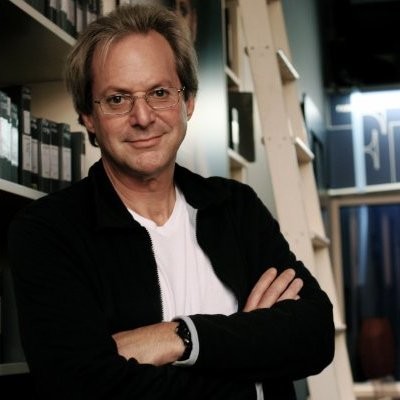
I’d been putzing around Canadian TV shows like Bizarre, fetching coffee and bagels for the crew, so I proposed a show to the channel where I always wanted to work: Citytv. It was a pitch for a Siskel & Ebert-style show about theatre.
I knew Moses liked theatre—because he was promoting his involvement in Tamara, an experimental 1981 interactive play. And while he liked the review idea, he said they weren’t interested, but would I like to produce the 10 p.m. newscast instead? And that was the Citytv aesthetic: Getting someone who knew nothing about news to do the news. It was enough to assure me a few years later that I could make a show about fashion.
I saw it mentioned somewhere in 1985 that Paris designers were starting to film their own collections for American buyers who couldn’t attend in-person.
Reading this, I figured if we could get our hands on that footage, we could make a show about that. The first four quarterly hours of FashionTelevision with Jeanne Beker became a weekly series, which ran from 1986 to 2012.
The show aired in over 70 countries. Citytv wasn’t set up to syndicate anything, but the intense interest in FT made it happen. And we got a lot of letters from guys in jail who loved the show.
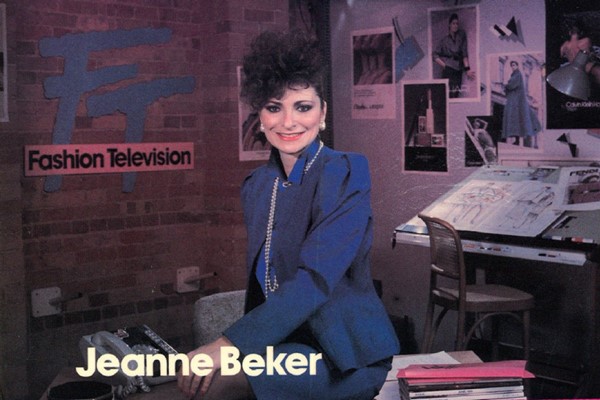
JOEL GOLDBERG
Born in Cleveland, his first on-camera break led to credits that included executive producer of Citytv’s dance party show Electric Circus, and directing hip-hop videos for Maestro Fresh Wes. Since then, his productions have included Your All Time Classic Hit Parade series on VisionTV.
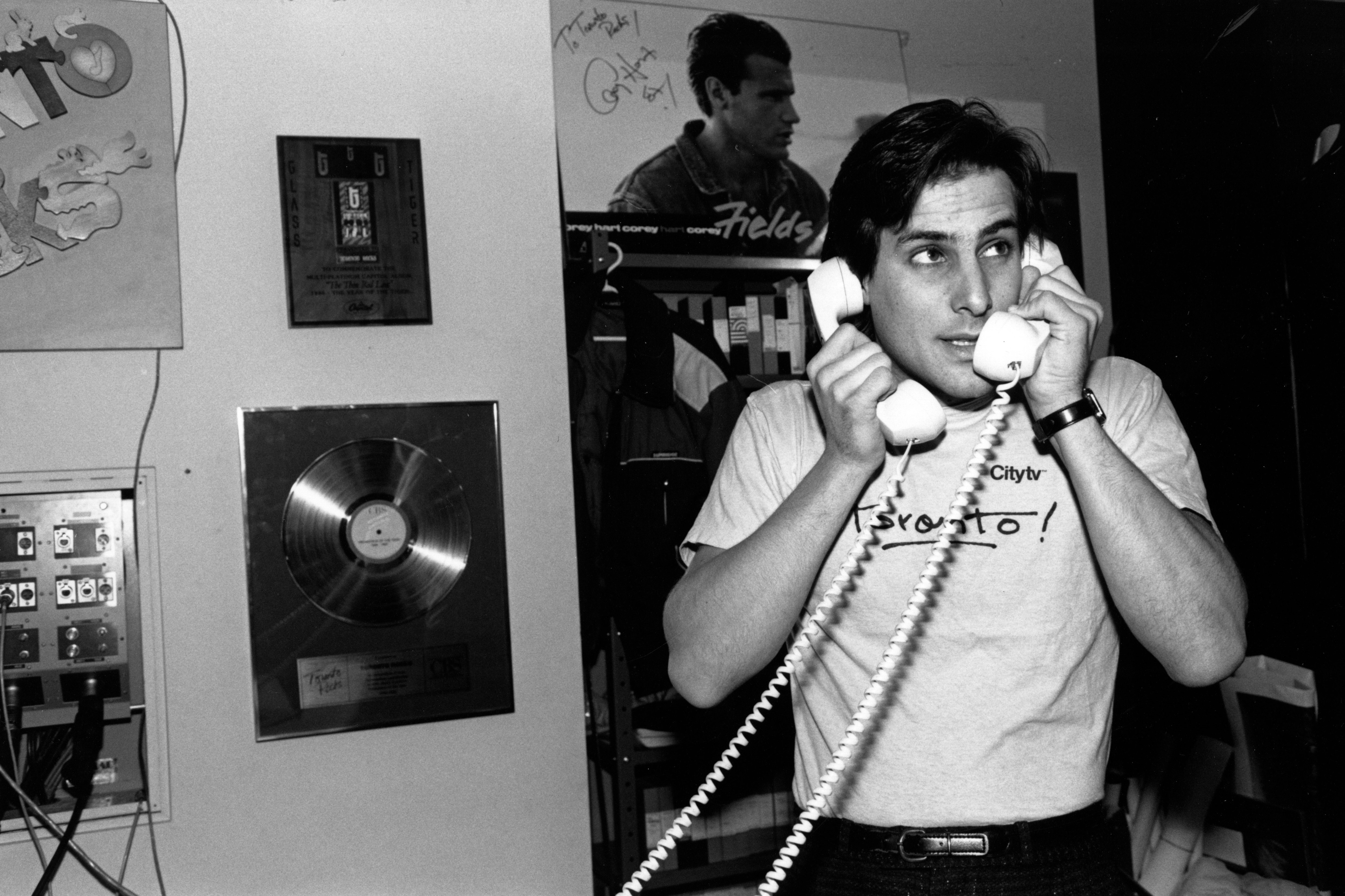
J. Gold was the name I used on Channel 47 in Toronto, as the host of music video shows which had a following because they focused on British new wave stuff. My goal however was to get to Citytv and I sent in my resumé along with some tapes.
I then got a call from Moses Znaimer, who had one question— why wasn’t I using my real name on TV? It was the producers’ idea, I explained, as they hinted I had to do it to get the job. Moses responded by telling me, “I’m going to give you your name back!”
The job was associate producer of Toronto Rocks, the Citytv music video show I’d been competing with. And then I was promoted to producer—in my 20s! We were the pulse of local pop culture in the mid-’80s—the program kids would race home from school to watch.
The crew putting together the show was equally youthful. You could feel the energy and adrenaline and creativity. I’d grab a camera in the morning, shoot something during the day and have it on the air that afternoon.
We were given direction by Moses—but once you understood his vision, you were given absolute freedom to carry things out in wonderful ways. And he demanded that we all do it under our real names.
IVAN REITMAN
The legendary Hollywood director, who died at age 75 on Feb. 12, 2022, was broke and needed a job when he became an early employee of Citytv. (You can watch our lengthy conversation about the early years of his career.)
I don’t know how many other people got fired from Citytv, but it certainly happened to me, it was just six months after I started working there.
And it was good for me—because then I could get on with the rest of my career.
Greed was a terrific show, it was live, it was 90 minutes every Saturday night. We had a budget of about $500, and two cameras. It was a combination of a bar mitzvah band, Joey Bishop’s burlesque performer cousin Rummy, who was the host. We did stunts and skits and it was just an amazing experience.
The other show that I did was Sweet City Women, it was on at 4 o’clock every single day. We had a lot of interesting segments: one was called “Losing It,” about losing weight, with a 300 lb. host, Monica Parker.
And there was one called “All About Men.” I think the most important part of that show was asking men about their sex lives.
I thought it was a terrific show but… nobody watched! Maybe that’s why I got fired.
Much more about Ivan Reitman and Citytv at thecjn.ca/ivan
MOSAIC—THE JEWISH SHOW

Vladimir Handera wasn’t sure what Moses Znaimer meant by asking him to create “a Yiddishkeit show” for Citytv. But he got down to the business of figuring it out anyway.
The resulting product was Mosaic, a pioneering type of Jewish program, which was just one of multiple multicultural offerings designed to reflect the emerging diversity of Toronto. It aired for three seasons.
Primarily hosted by singer and journalist Malka Marom—then going by just her first name—the episodes focused on topics like Canadian Jewish identity, flashbacks to life in the shtetl, and a panel on “women’s lib and the Jewish woman.” Otherwise, they could always count on an upcoming holiday to structure the episode around.
“Mosaic shows improvement after understandably slow start,” was the headline on a conspicuously unbylined review in The CJN’s issue dated Feb. 16, 1973, which noted how “the camera occasionally still pans desperately searching for the right face.”
The non-Jewish producer-director of Mosaic went on to produce (and later host) Citytv’s 1970s disco show, Boogie. Later, he mounted a Hebrew series called Shalom on multilingual startup Channel 47, which only lasted one season due to a lack of sponsor support. (Vladimir Handera died in 2015.)
